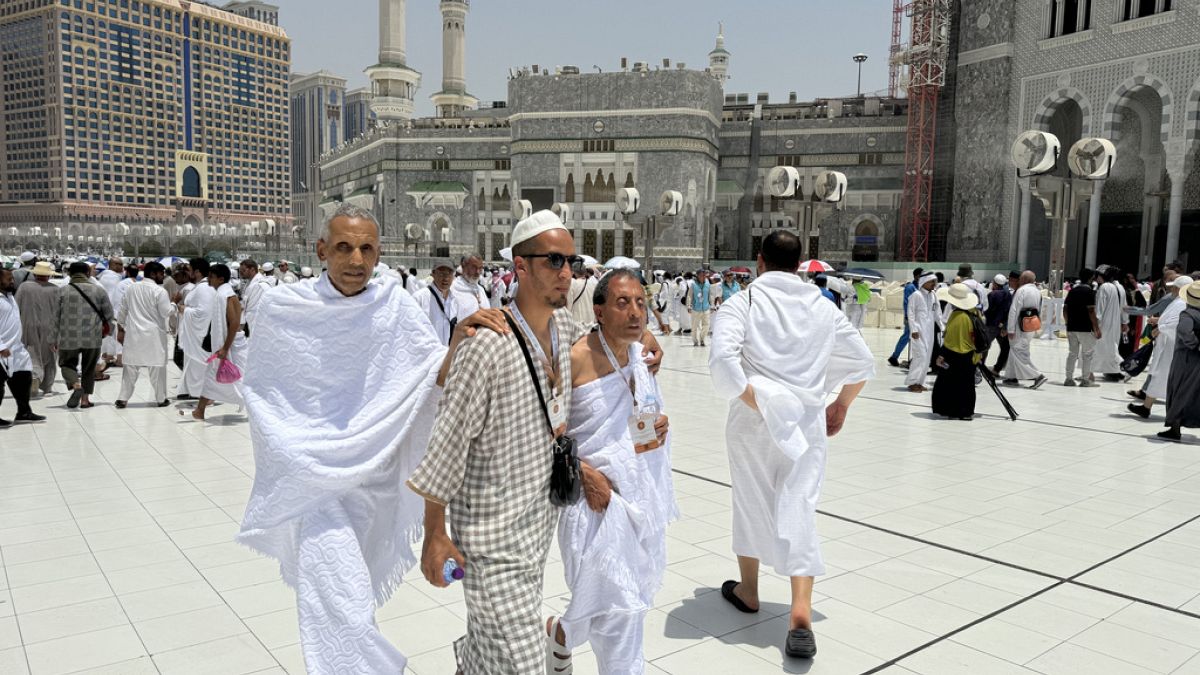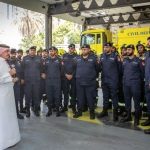The annual Islamic pilgrimage known as Hajj is a requirement for every able-bodied and financially-capable Muslim to make at least once in their lifetime. This year, millions of Muslims from around the world gathered in Mecca for the pilgrimage despite the scorching temperatures reaching up to 44 degrees Celsius. The ongoing conflicts in the region, such as the one between Israel and Palestinian militants, affected the ability of some to participate in Hajj. The closure of the Rafah crossing prevented Palestinians from Gaza from traveling to Mecca, prompting King Salman of Saudi Arabia to invite 1,000 individuals affected by the war to perform Hajj.
For many Muslims, the Hajj is a deeply spiritual journey that brings them closer to God and allows them to seek forgiveness for their sins. The five-day pilgrimage is a chance for Muslims from different backgrounds to come together and pray for peace in the conflict-ridden regions of the world. This year, Syrian pilgrims were able to travel to Mecca directly from Damascus for the first time in over a decade, signaling a thaw in relations between Saudi Arabia and Syria. The rituals performed during the Hajj are based on the accounts of Prophet Ibrahim, his son Ismail, and Ismail’s mother Hajar, as mentioned in the Quran.
The closure of the Rafah crossing due to the conflict in Gaza prevented many Palestinians from participating in the Hajj this year. Palestinian authorities reported that only 4,200 pilgrims from the West Bank were able to travel to Mecca for the pilgrimage. However, King Salman of Saudi Arabia extended an invitation to 1,000 individuals affected by the war in Gaza to join the Hajj this year. For 75-year-old Amna Abu Mutlaq from Gaza, the closure of the crossing and the ongoing conflicts have deprived her of the opportunity to perform Hajj. Despite the challenges faced by many pilgrims, the Hajj remains a significant journey in the lives of Muslims around the world.
The Hajj pilgrimage is considered one of the Five Pillars of Islam, making it a fundamental practice for all Muslims who are physically and financially capable. The pilgrimage allows Muslims to unite and pray for peace in the world, particularly in regions plagued by conflict and war. For many Muslims, the journey to Mecca for Hajj is the only major trip they undertake in their lifetime, with some waiting until their later years to fulfill this sacred duty. The rituals performed during the Hajj are deeply rooted in the teachings of Prophet Ibrahim and his family, emphasizing faith, sacrifice, and submission to the will of God.
Despite the challenges and obstacles faced by some pilgrims this year, the Hajj remains a symbol of unity and devotion for Muslims around the world. The pilgrimage is a profound spiritual experience that allows believers to seek forgiveness, cleanse their souls, and strengthen their faith. The participation of pilgrims from conflict-ridden regions like Syria highlights the importance of peace and reconciliation in the Islamic faith. As millions of Muslims converge in Mecca each year for the Hajj, they come together to pray for harmony, understanding, and compassion in a world torn by strife and division.











